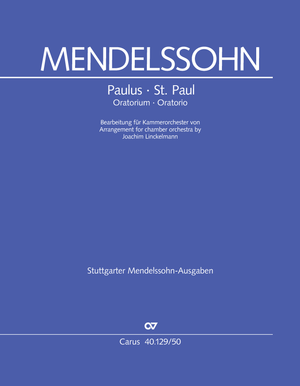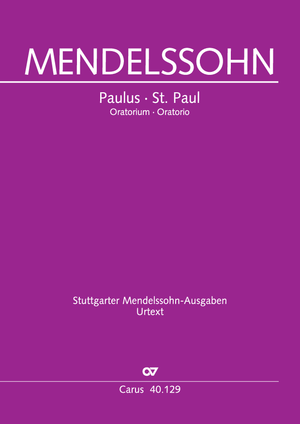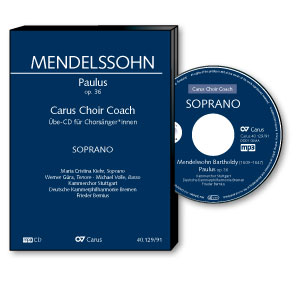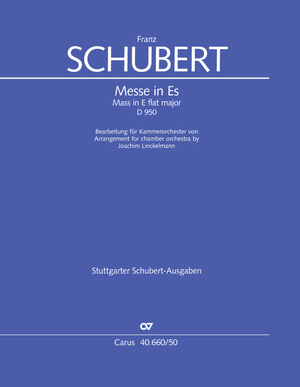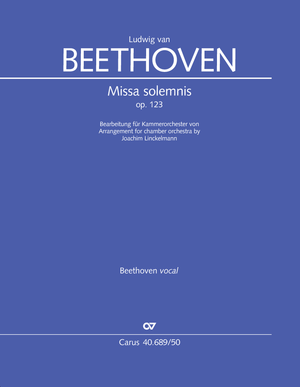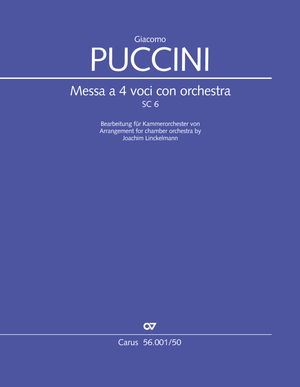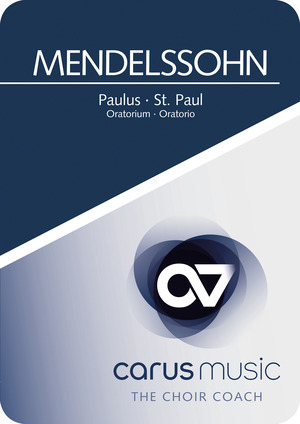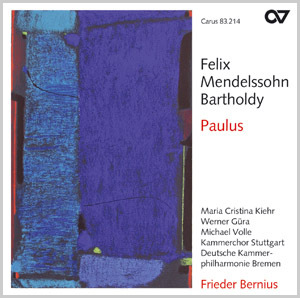St. Paul. Oratorio
Arrangement for chamber orchestra (arr. J. Linckelmann) MWV A 14 (Op. 36), 1834-1836 / 2022
Mendelssohn’s St. Paul with just seven instead of the usual 18 wind instruments? Thanks to this arrangement for chamber orchestra, a performance with smaller forces is now possible, and presents an attractive alternative for performing Mendelssohn’s first oratorio – not only in times of Corona. For it is often considerations of space, a limited budget, or the size of the chorus which call for flexibility in scoring.
The arrangement is based on the Carus Urtext edition. By reducing the symphonic wind and brass in particular, the volume of sound is more restrained, but nevertheless the symphonic character and a wide dynamic range are retained. All the vocal parts (soloists and chorus) are identical with the original version, so that the vocal scores, choral scores, and practice aids of the existing Carus edition can still be used.
- Major oratorio can also be performed by smaller choirs
- Wind and brass parts of the original version reduced to just seven single instruments
- vocal scores and choral scores from the original version can be used
- carus plus: the work (original version) is available in carus music, the Choir Coach, and in the Carus Choir Coach (audio only) series.
| Original version | Arrangement for chamber orchestra |
|
Soli SATB, Coro SATB, 2 Fl, 2 Ob, 2 Clt, 2 Fg, 4 Cor, 2 Tr, 3 Trb, Serpente, Timp, 2 Vl, Va, Vc, Cb, Org |
Soli SATB, Coro SATB, Fl, Ob, Clt, Fg, Cor, Tr, Trb, Timp, 2 Vl, Va, Vc, Cb, Org |
Purchase
Additional product information
-
Composer
Felix Mendelssohn Bartholdy
| 1809-1847
-
Arranger
Joachim Linckelmann
Frequent questions about this work
Is it possible to perform this version with historical instruments?
Modern arrangements for smaller ensembles often require single instruments to take on multiple parts from the original version. This would be possible only to a very limited extent with historical instruments. This chamber music version should therefore be performed with modern wind instruments.
Can the string parts of the original version (Carus 40.129/00) also be used for the arrangement?
Yes, the string parts in the arrangement have been taken over almost unchanged from the original version. Detailed information about the few changes in the string parts can be found in the foreword of the full score. However, we also offer the slightly altered string parts on loan with article number Carus 40.129/69.
 There are no questions and answers available so far or you were unable to find an answer to your specific question about this work? Then click here and send your specific questions to our Customer Services!
There are no questions and answers available so far or you were unable to find an answer to your specific question about this work? Then click here and send your specific questions to our Customer Services!


